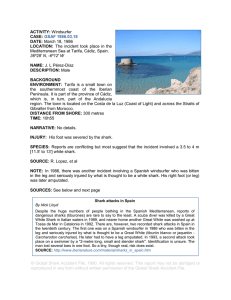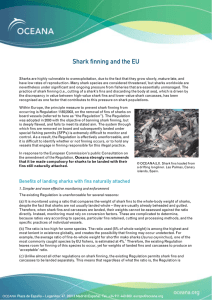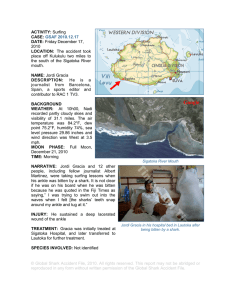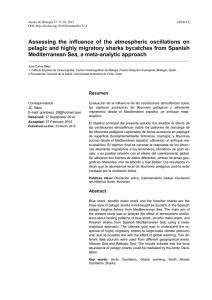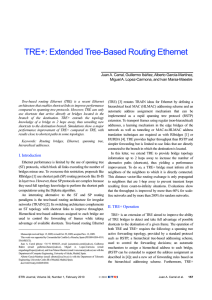The offensive practice of shark finning
Anuncio
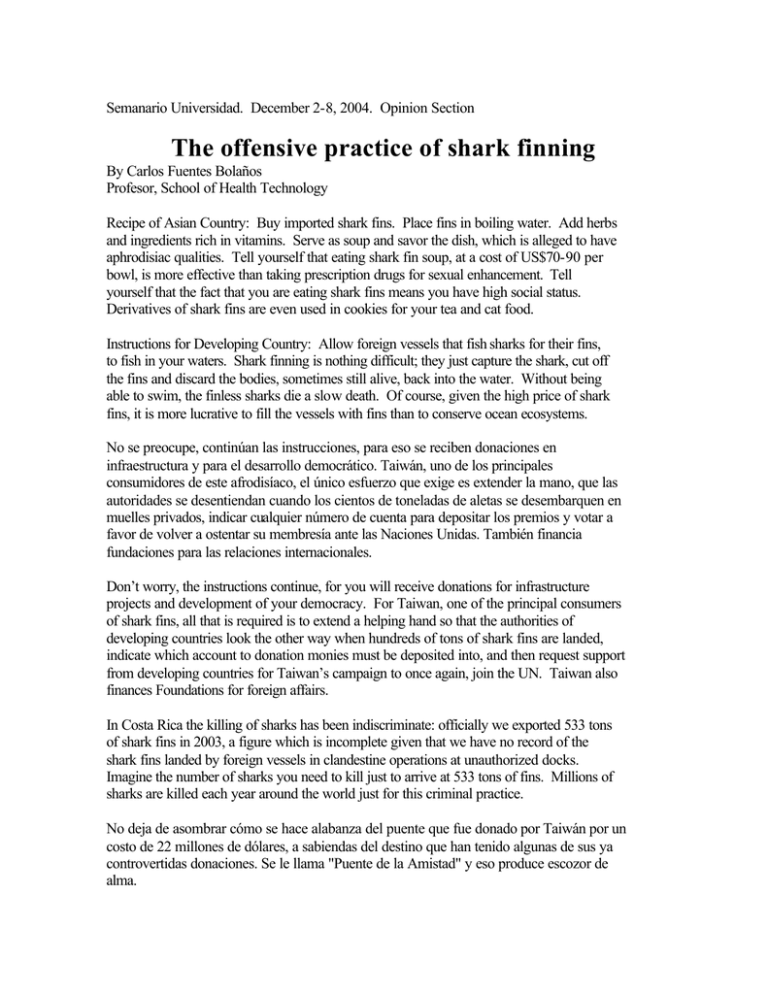
Semanario Universidad. December 2-8, 2004. Opinion Section The offensive practice of shark finning By Carlos Fuentes Bolaños Profesor, School of Health Technology Recipe of Asian Country: Buy imported shark fins. Place fins in boiling water. Add herbs and ingredients rich in vitamins. Serve as soup and savor the dish, which is alleged to have aphrodisiac qualities. Tell yourself that eating shark fin soup, at a cost of US$70-90 per bowl, is more effective than taking prescription drugs for sexual enhancement. Tell yourself that the fact that you are eating shark fins means you have high social status. Derivatives of shark fins are even used in cookies for your tea and cat food. Instructions for Developing Country: Allow foreign vessels that fish sharks for their fins, to fish in your waters. Shark finning is nothing difficult; they just capture the shark, cut off the fins and discard the bodies, sometimes still alive, back into the water. Without being able to swim, the finless sharks die a slow death. Of course, given the high price of shark fins, it is more lucrative to fill the vessels with fins than to conserve ocean ecosystems. No se preocupe, continúan las instrucciones, para eso se reciben donaciones en infraestructura y para el desarrollo democrático. Taiwán, uno de los principales consumidores de este afrodisíaco, el único esfuerzo que exige es extender la mano, que las autoridades se desentiendan cuando los cientos de toneladas de aletas se desembarquen en muelles privados, indicar cualquier número de cuenta para depositar los premios y votar a favor de volver a ostentar su membresía ante las Naciones Unidas. También financia fundaciones para las relaciones internacionales. Don’t worry, the instructions continue, for you will receive donations for infrastructure projects and development of your democracy. For Taiwan, one of the principal consumers of shark fins, all that is required is to extend a helping hand so that the authorities of developing countries look the other way when hundreds of tons of shark fins are landed, indicate which account to donation monies must be deposited into, and then request support from developing countries for Taiwan’s campaign to once again, join the UN. Taiwan also finances Foundations for foreign affairs. In Costa Rica the killing of sharks has been indiscriminate: officially we exported 533 tons of shark fins in 2003, a figure which is incomplete given that we have no record of the shark fins landed by foreign vessels in clandestine operations at unauthorized docks. Imagine the number of sharks you need to kill just to arrive at 533 tons of fins. Millions of sharks are killed each year around the world just for this criminal practice. No deja de asombrar cómo se hace alabanza del puente que fue donado por Taiwán por un costo de 22 millones de dólares, a sabiendas del destino que han tenido algunas de sus ya controvertidas donaciones. Se le llama "Puente de la Amistad" y eso produce escozor de alma. It never ceases to amaze how praise is lavished upon the bridge donated by Taiwan at a cost of US$22 million, even while it is known where some of those controversial donations ended up. The bridge is called “Friendship Bridge”, a name which rips our soul. Populations in the Guanacaste Province and Costa Rica in general, truly needed the bridge; but it would be reasonable to return the value of the donation, and forbid the Taiwanese and others to fin sharks. The donation from Taiwan must be examined, because while on one hand they constructed a bridge, on the other hand they continue capturing hundreds of tons of sharks and influencing political campaigns. The sharks will continue to be victims of this predation if efforts are not taken to end shark finning, a practice which threatens entire ocean ecosystems. I’m not sure if the National Commission on Nomenclature has even approved this word, a word that does us no honor. Riches earned in the shark fin industry are transformed into Taiwanese donations: during the inauguration of this bridge over the Tempisque River, we were informed that the Taiwanese government would donate US$15 million as well as loan US$35 million more for the construction of a stretch of highway to the town of San Carlos. Judging from the past we will be demonstrative in our appreciation for so generous and splendid a gesture. Perhaps the stretch of highway will have a name, which like that of the Tempisque Bridge, will remind us of the friendship between Costa Rica and Taiwan. The bridge over the Tempisque River deserves a name change. The actual “Friendship Bridge” does not capture the meaning of friendship: “Pure and unselfish affection shared with another, that is born and is strengthened with relationship.” It is sufficiently demonstrated that we’re not talking about unselfishness. Nor is there affection or anything pure. There cannot be friendship if in exchange we offer up our ocean resources for a handful of cash and when an additional objective behind donations is to obtain votes at the UN. Friends count on solidarity and mutual appreciation, not manipulation or giving in hope of receiving something in return. It is necessary to be cautious and not enter into international relationships that fail to align with our values, and we must take special care to protect our natural resources, the very heritage that we will bequeath to future generations.
